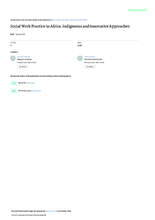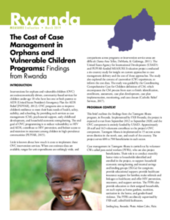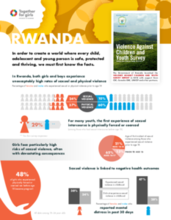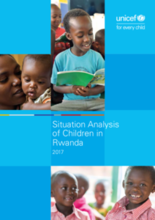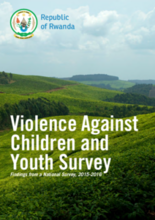This country page features an interactive, icon-based data dashboard providing a national-level overview of the status of children’s care and care reform efforts (a “Country Care Snapshot”), along with a list of resources and organizations in the country.
demographic_data
childrens_living_arrangement
children_living_without_bio
adoption
social_work_force
key_stakeholders
Key Stakeholders
Add New DataOther Relevant Reforms
Add New Datadrivers_of_institutionalisation
Drivers of Institutionaliziation
Add New Datakey_research_and_information
Key Data Sources
Add New DataReport on National Assessment of Centres caring for Children with Disabilities in Rwanda
National Integrated Child Rights Policy
Country Care Review: Rwanda
Prevalence and number of children living in institutional care: global, regional, and country estimates
The Way Forward Project Report
Community-Based Child Protection Mechanisms in Refugee Camps in Rwanda: An Ethnographic Study
Displaying 91 - 100 of 191
This book, based on empirical research, presents a selection of indigenous and innovative models and approaches of problem solving that will inspire social work practice and education.
This brief outlines the findings from the Turengere Abana program in Rwanda.
USAID and PEPFAR-funded MEASURE Evaluation worked with six OVC projects in six countries to gain insight on current approaches to OVC case management, map how costs can be linked to OVC case management activities, and determine the cost of OVC case management.
The All Babies Count (ABC) initiative was a comprehensive health systems strengthening intervention designed to improve neonatal care in rural public facilities. This article describes ABC implementation outcomes, including development of a quality improvement (QI) change package.
This fact sheet presents country-specific data from the Violence Against Children Survey (VACS) in Rwanda.
The objective of this consultancy is to document selected key programmes and achievements from the current country programme for the purposes of sharing lessons learnt, showcasing the achievements in Rwanda and advocacy for future resource mobilization for child protection.
UNICEF is seeking a consultant to document the Child Protection Programme in Rwanda.
This situation analysis provides a timely assessment of progress for children, achievements to date, and remaining challenges and barriers to the realization of children’s rights in Rwanda.
This report presents findings from the national Violence Against Children Survey (VACS), administered in Rwanda from 2015-2016, and lays out recommendations for addressing and preventing violence against children based on those findings.
This video from UNICEF Rwanda shows some of the moving stories of children and their new families who have been brought together through the TMM initiative, which reintegrates children who have been living in institutions into families and the community.

